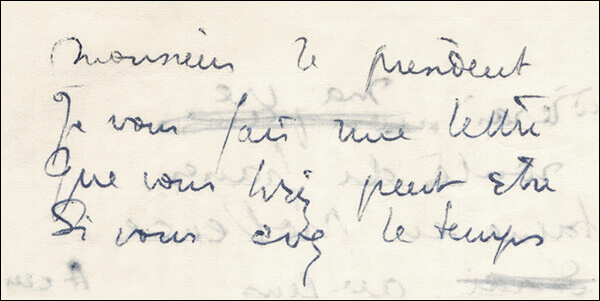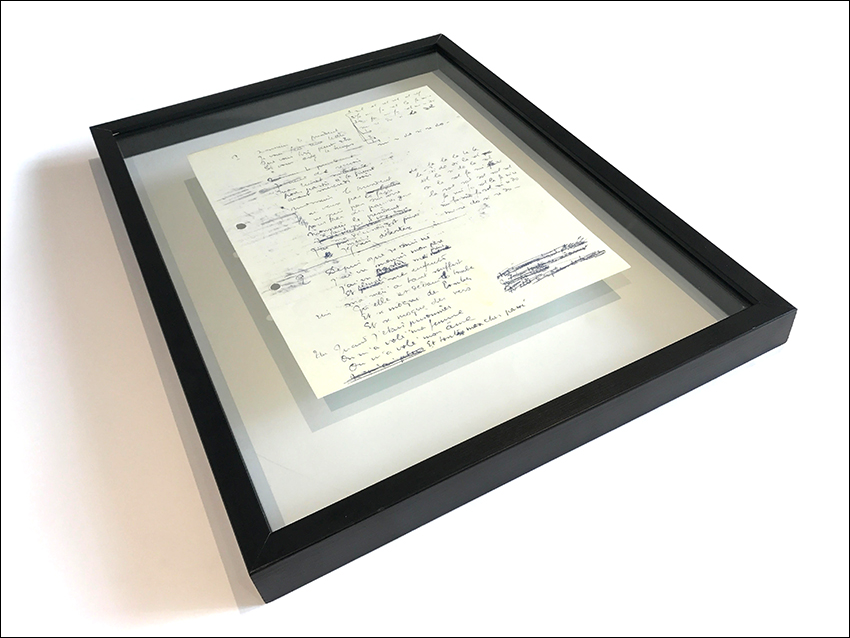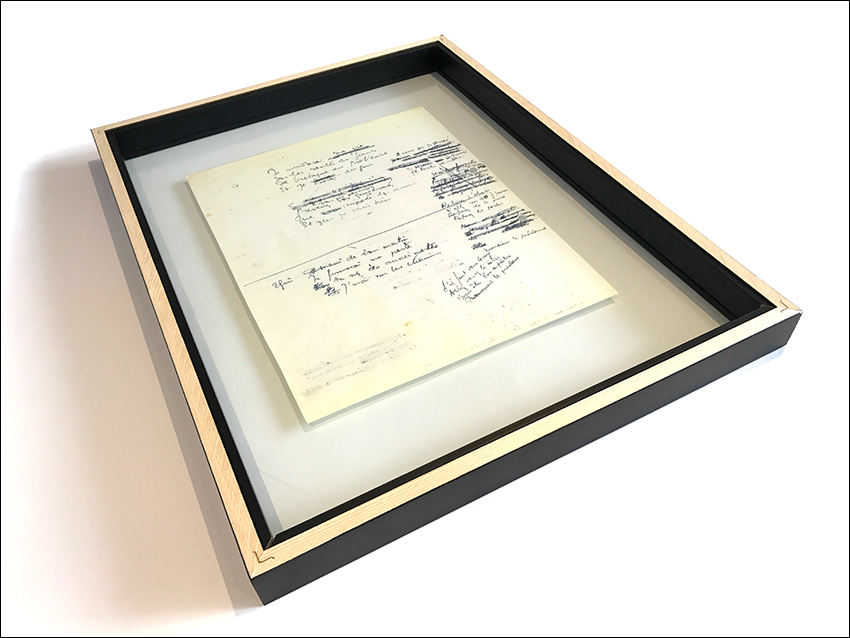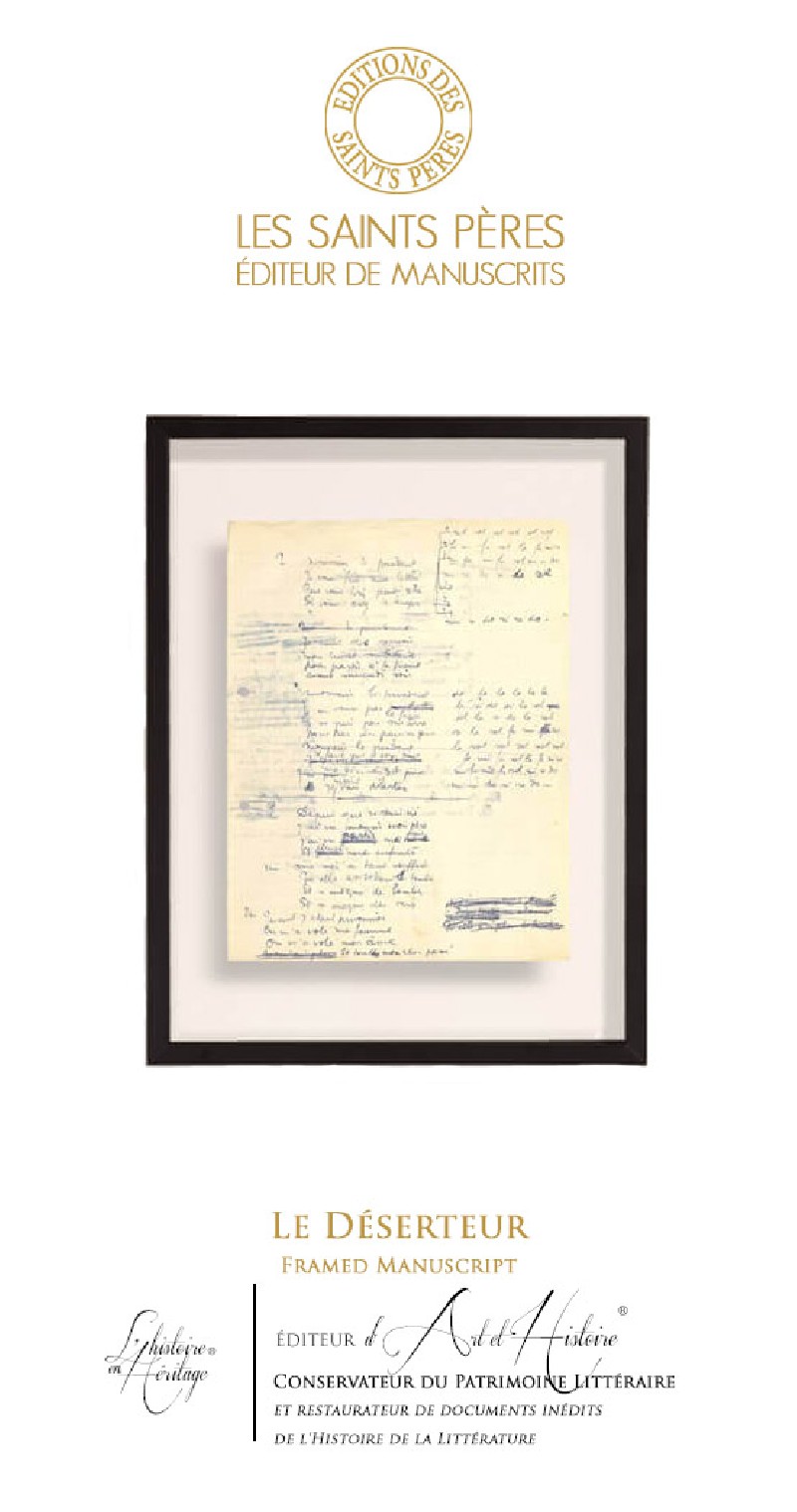Le Déserteur: the manuscript

February 1954. Boris Vian wrote the lyrics to his visionary song, « Le Déserteur », in a mere twenty-four to forty-eight hour period.
Disturbed by the conflict in Southeast Asia and in Algeria, and by the Second World War, (which broke out when he was 19 years old) Boris Vian put his pen to paper to express his civic nature and his disgust for war. The text tells the story of a man who refuses to take the field, to kill, announces his intention to desert and urges all others to follow.

Pacifism or rebellion?
Artists rejected 'Le Déserteur' left and right. Boris Vian’s name did not yet carry the weight that it soon would — he had yet to write his famous L’Ecume des jours, or the controversial J’irai cracher sur vos tombes. Eventually, French singer and pacifist, Marcel Mouloudji, accepted to interpret the song on the condition that he could amend the text.
Boris Vian agreed to Mouloudji’s terms and ‘Si vous me poursuivez / Prévenez vos gendarmes / Que j’emporte des armes / Et que je sais tirer’ (‘If you come after me/ warn your police/ that I'll be armed/and I know how to shoot’) became ‘Que je n'aurai pas d'armes / Et qu'ils pourront tirer’ ( ‘that I'll be unarmed/ and that they can shoot’).
The revision, which appears for the first time in this previously unpublished manuscript, is far from anodyne. Behind Vian’s pacifist facade he was imbued with a revolutionary —almost anarchist — ardor.
Despite Mouloudji’s modifications, the lyrics remain distinct to the author’s character. They reflect Vian’s bold resolution as he questions the President, expresses dissent during a troubled time, and urges for conscientious objection and resistance in defense personal ideals. Because the most important ‘is not humankind’s happiness but each individual’s personal happiness’ (L’Ecume des Jours). Rather than take group action, each person must manage their own conscience and push forth their creativity!

Censured
Boris Vian performed and recorded ‘Le Deserteur’ in 1955. Despite a modified ending, the song stirred quite a bit of scandal. Censured for reasons of anti-patriotism, it was banned from radio broadcast in 1955, then again during the Gulf War in 1991! ‘Le Déserteur’ reached fame during the Vietnam War, and became an emblem of pacifism: chanted in the streets and interpreted by Peter Paul and Mary, Joan Baez etc.
| Number of Pages : | 1 |
| Numbered Copy : | Yes |
| Language : | French |
| Number of Frames : | 1 |
| Frame dimensions : | 32,2 x 42,2 cm |
| Frame : | wood/black |
| Framing : | between two glass plates |
Autres produits associés à "Framed Manuscripts of History"
Wishlist
Top sellers
-

Jardin le Nôtre - Eau de Parfum
Reinterpreted Perfume Of History In order to celebrate the fourth...
10,00€ -

Bouquet du Trianon - Eau de Toilette
Reinterpreted Perfume Of History Versailles, 15th of August 1774 Art...
59,00€ -

Orangerie du Roy - Eau de Toilette
reinterpreted Perfumes of History Versailles, September 1rst 1689...
59,00€ -

Rose de France - Perfumed Soap
reinterpreted Scents of History Rose de France plunges us into the...
6,50€



















No customer reviews for the moment.